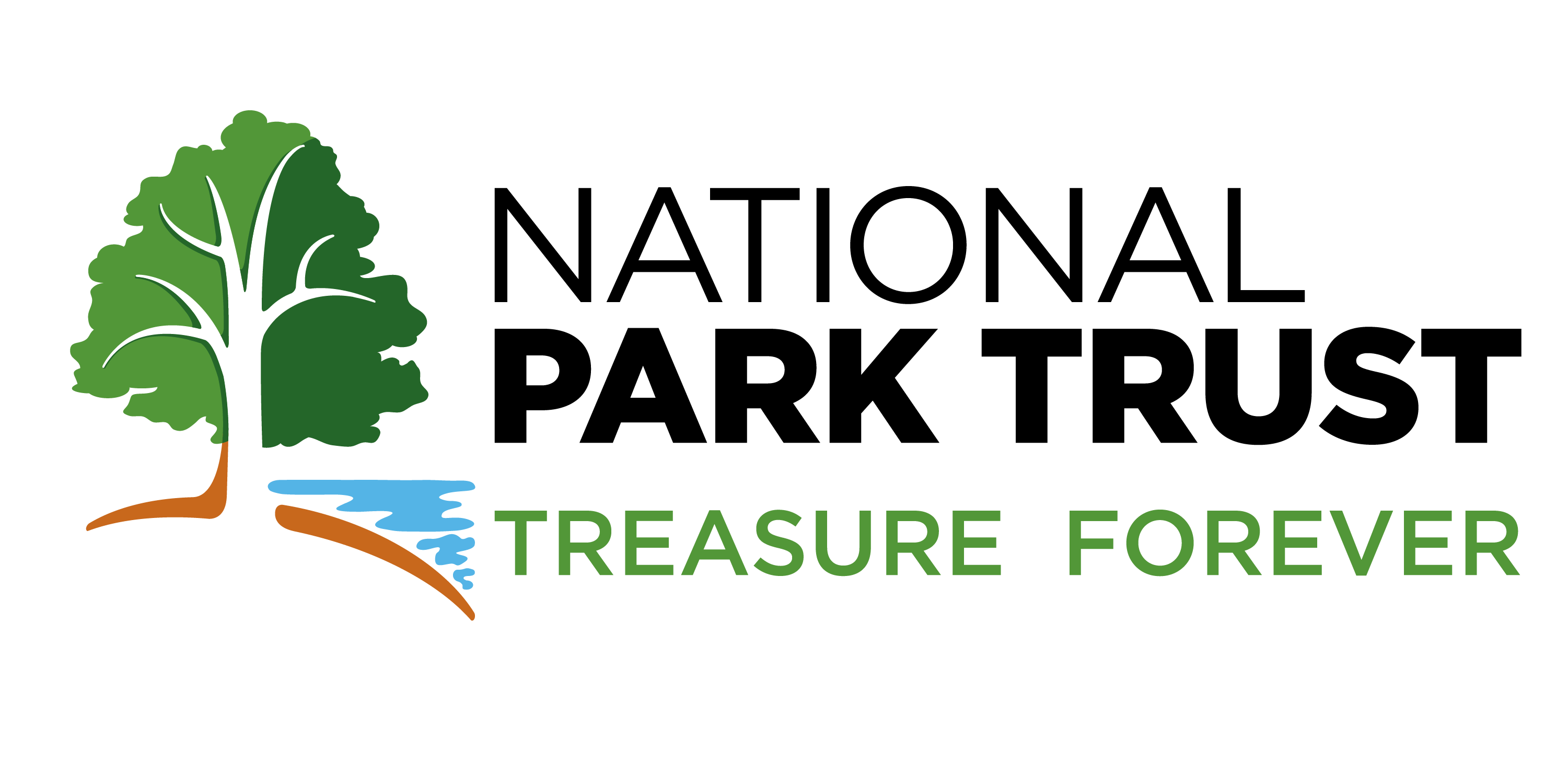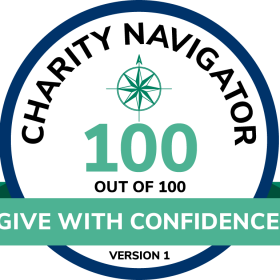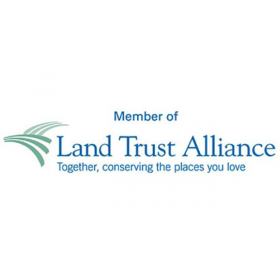An Interview with Ranger Lisa from Acadia National Park
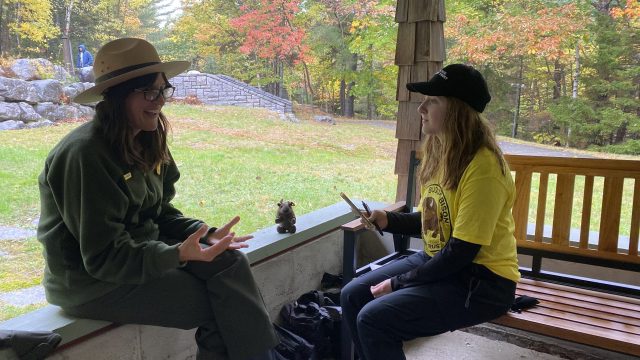
This fall break I was given the fantastic opportunity by the National Park Trust to interview Park Ranger Lisa Gerardin at Acadia National Park! Getting to know Ranger Lisa and talking about her love for the park made my trip memorable! Rangers like her are the reason I want to be one when I get older! Hearing about her passion for Acadia and her passion for sharing the park’s resources with others was just so special. Thank you so much Ranger Lisa for giving me this amazing opportunity and I hope the readers enjoy this amazing interview! (Please note, responses have been edited for clarity and length.)
How long have you worked as a park ranger?
“I have worked as a park ranger for around 20 seasons. Mostly here in Acadia National Park but I have also worked in Everglades National Park and I have also interned in Redwood National Park as well.”
That’s awesome! I went to Redwoods last summer and went to the Everglades a few years ago. Are you mainly here in Acadia?
“Yes, I am. I am here year-round in Acadia National Park.”
Awesome, so you went from a seasonal to a full-time ranger?
“I did, yeah. I was seasonal for a long time and I became a permanent ranger a couple of years ago.”
That’s exciting! So what makes the park (Acadia) so special to you?
“I love Acadia National Park. It’s special to me for so many reasons. One of the main reasons that I love this park is there is such a diversity of habitats and recreational opportunities. We have 60 miles of coastline, including one big sand beach, and we have a rocky coastline and some muddy coastline. We have 26 incredible mountains, lakes and streams, and some freshwater habitats as well. So there’s a lot of incredible habitats all in one park, I really enjoy that.”
That’s really neat! What is your favorite fun fact about the park that you want to share with people?
“Acadia National Park is a habitat for a lot of incredible animals. There are over three hundred types of birds that live in Acadia National Park and there are almost 20 types of reptiles and amphibians and close to 40 types of mammals. So we have a lot of interesting wildlife to study and to learn about here.”
You must really like the habitats and ecosystems of Acadia National Park.
“Yes!”
What is a tip or trick you would like to share with families before visiting the park?
“When you are coming to Acadia National Park, I think one thing to remember is that it is a very popular park. We get close to 4 million visitors a year. If you are here during the busy season we recommend trying to start your day early. And maybe also visit less busy parts of the park during the peak times of the day. Really try to plan out your day to avoid the crowds as best as you can so that you have a great experience. But my number one tip is to get up early and get to the park as early as possible. That way you can get into the spots you want to explore and make sure you have time for all of them.
That’s a great tip. Arriving early has worked out really well for my family.
What is your favorite activity to do in the park?
“My favorite activity is to explore the coastal zones. I love going down to the sand beach. As I said, it’s the only big sand beach in this part of the state and is made out of mostly crushed shells. So it’s a very unique beach, the water is very cold. I like to just spend time with my family on the beach and explore.
I also do a lot of field trips with local students on the sand beach and teach about the geological formation process that has shaped the coastline. Then we head over to our rocky coast. That’s where I like to explore the tidepool areas, at low tide we have some places in the park that are relatively flat compared to some other rocky areas, which are great places to go explore with your family and look for animals that call the shoreline home.
That’s really cool, we are hoping to go to the tidepools at some point, so it makes me excited that you’re excited!
You’ve been a park ranger for quite a bit of time. What college did you go to and what did you major in to become a park ranger? I want to be a park ranger so I am trying to figure out how other rangers got to be in the National Park Service.
“I grew up in North Carolina and I went to college there at the University of North Carolina Chapel Hill. I majored in biology. I love habitats and wildlife. And I minored in marine sciences, so that’s where I really got my love for the coastal areas. After graduating from college I realized I wanted to go into education. I wanted to share what I knew about nature and explore with students. So I started volunteering and interning at National Parks and private camps and non-profits like nature centers. I got my foot in the door by doing a lot of volunteer work when I was younger. And I eventually started to get seasonal jobs in the parks and worked my way up into a permanent position.
It is neat to think about all my colleagues here. We all have different backgrounds. I know I have some colleagues who majored in history and some that majored in French and some that studied geology. We all went into specific content areas but then we all came together here. What is great is that I get to teach about a lot of different things and also teach about the topics in my background as well. So it’s a great learning experience, the job. I’m always learning every year.
As someone looking to be a future park ranger, it’s been very hard to decide what I would want to do and what I want to major in because I really could do anything and still end up with the dream job of being a park ranger.
Would you suggest majoring in biology?
“Sure, I would say if you really are enjoying reading and learning about wildlife, watching wildlife, heading out with your binoculars, going out and hiking. I think it’s a great topic to explore. And I mentioned the other routes because there are so many different avenues to come into these jobs, but I would say find what you’re passionate about, what really makes you happy. Because if you tie that into what your career is going to be, then every day is going to be joyful. If you really love being out in the forest and looking at and observing animals, and you study that and it gets to become your job then it’s just going to be an incredible career path for you.
That’s really good advice! That makes me feel better in a way because I have talked to my parents about going into being a park ranger, and it’s a little of everything, and I like everything.
“It is a lot, you know. My first year here I was assigned to do astronomy talks, and I did a lot of biology and coastal talks, and I did some carriage road history walks as well. I still do a little bit of everything. While everyone does have some kind of focus, we get to learn about everything. So that’s a wonderful part of this job! I’m not just doing one specific topic. I get to learn about the park and create opportunities to connect visitors to the resources.”
That’s really awesome! You said that you lead field trips; what are the main points that you hit on during field trips? I know the NPS and the National Park Trust have a big focus on getting kids outdoors, so what are some things you get kids excited about?
“Oh, great question! We actually offer quite a lot of field trips here. Most of our field trips are in the fall and the spring when school is in session and it’s not too cold. I would say our number one goal with these field trips would be to get them outside and have a sensory, discovery experience where they can connect with the outside world and feel good about being outside.
As far as what we are teaching them, we have really expanded our curriculum in the last ten years. We mostly teach students from kindergarten to 8th grade, and we are teaching about biology and geology, and we are doing cultural history too. We try to offer students that come back each year something a little different each time as they continue with their education. So we are really excited about that. And of course, as a national park, we want to hopefully inspire them to steward these special places.
That’s really awesome! I wish I lived in Maine so that I could participate, that sounds really, really awesome.
The Park Trust, along with getting kids outdoors, also focuses on acquiring land to donate to the NPS. I know that in the past, the Rockefeller family donated land to Acadia, is there land being added on to the park today? “
“Yes. We are a very special park in that this is a park made almost entirely of donated land. Something that’s pretty interesting that happens here is what’s known as a conservation easement. A conservation easement is a legal agreement between national parks and private citizens’ lands, where their lands become essentially a protected resource, a part of the park, even though the land is still within private holdings. We actually have many acres of conservation easements. Each particular easement is created with a particular private family and has a specific permit. But those are technically a part of the protected lands in our national park. The easement is one way we can still protect the land.”
Wow! I learned something new! It’s really awesome that you work with the private land owners to continue to protect the park without having to fully own the land and allow the private owners to still have their land but kind of share it and have a compromise. I didn’t know that thing existed. So thank you for teaching me something new!
“They’re all a little different. They’re not places visitors can go but they have the specific things they will do with their land to essentially protect their resources.”
I have this signature question that I ask on my podcast, called “America’s Junior Rangers“, whenever I interview a ranger. I always ask, if you could live in any national park, all expenses paid, what national park would you live in?
“Oh my goodness what a great question. Okay, I would definitely say Acadia, because my heart is in Acadia! I love Acadia National Park. It’s where the mountains meet the sea, it’s such an incredible place to me and I feel so connected to this place. And I have explored it for so many years to have a place where I could just be would be great. I hope to be here for the rest of my career. It’s very special, so I would say Acadia National Park!”
Is there anything else you would like people to know about Acadia National Park?
“You know Acadia is incredible, I think a lot of people don’t realize that it is technically a year-round park. Yes, a lot of the roads are closed in the winter, we don’t plow them. But there are some areas you can go to and explore, there are winter activities, and the visitation is low. Of course, there are a lot of safety issues you would need to think about and be prepared for in the winter, but a lot of people don’t realize that we are a year-round park even though the main park road is closed. Part of my job in the winter is delivering virtual programs for students from Maine and all over the United States. We are really hoping to connect with a lot of people who might not be able to come to the actual park in person but can still connect to it.
I now have a new question, for someone looking for a classroom or their kids to get involved in a virtual program, would they just go to the Acadia National Park website?
“Absolutely. When you go to our home page, you can click on “learn about the park” and under “learn about the park” if you click on education, you’re going to get a lot of great resources and the first one should be “distance learning”. When you go to “distance learning” your going to see close to 30 different offerings currently. We are really excited about them, it’s a relatively newer part of our educational curriculum here but we’re really proud of it and were excited to continue. And we encourage people to check out our website for more information.”
Thank you so much again to Ranger Lisa! Keep exploring our National Parks and PARK ON!! -Junior Ranger Clara
